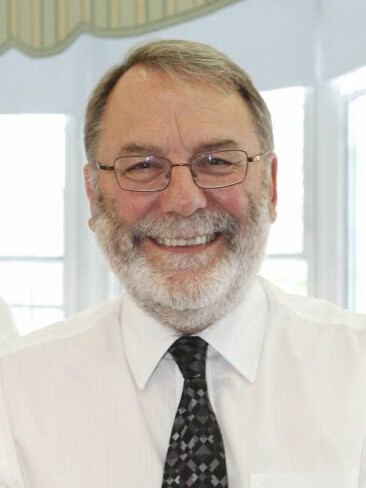Artificial Intelligence
Cyber
Future Telecoms
Materials
Quantum
Wise words and waggishness… February 2026
Reading time: 2 mins
It’s all about the end-to-end products and solving problems, says leading scientist
A long queue snaking along Upper Street in London last Friday prompted some passers-by to ask what on Earth was going on? When the answer came that it was for the UK National Quantum Technologies Showcase at the Business Design Centre, the inquisitive looks turned to ones of bemusement. “What’s that?” came one reply – reminding everyone that while for some the quantum industry is growing, there is still a long way to go.
For Sir Peter Knight, a driving force behind the UK’s quantum industry, this came as no surprise. Knight, who is an Emeritus Professor in the department of physics at Imperial College London, is described as “one of the UK’s most influential scientists and leaders of scientific policy” by his peers. He has won too many awards to list, but it’s fair to say his work in getting the UK quantum industry up and running is unquestioned.
As a key architect of the UK National Quantum Technologies Programme, Knight is no stranger to milestones. Over the past decade he has been instrumental in transforming quantum from an academic pursuit into an industry with practical potential, securing over £1.1 billion in investment since 2014 and inspiring “heroes”, as he calls the enablers and innovators who have driven the sector forward.
“The quantum industry has grown tremendously in the past 10 years,” said Knight, “but we need patient capital investment and partnerships with government departments to navigate the journey from VC support to IPO.”
Knight’s vision for the sector is one of sustained growth, where UK companies can scale without relying on early exits abroad. To him, the goal is not only about breakthroughs in research, but about building the infrastructure and skill base that will enable quantum technologies to thrive in a commercial market.

To support commercialisation, the National Quantum Technologies Programme has already taken concrete steps by establishing testbeds, where “customers can come in and kick the tyres,” said Knight. Combined with government-backed investment vehicles and partnerships with private investors, this should “allow UK quantum start-ups to mature within the country, bringing greater economic returns, reinforcing the UK’s position as a technology leader,” added Knight.
It’s about getting all the right pieces in place, removing excuses, enabling innovation and allowing start-ups to grow quickly and effectively. That also means developing a source of skills and collaborating across regions to avoid unnecessary competitive friction.
“We’ve put in all the right mechanisms to support really innovative, relatively senior people,” explained Knight, “but companies are going to need technicians and engineers who understand why quantum is valuable to them.”
He advocates for government incentives that support apprenticeship schemes, cross-sector training, and educational programmes beyond traditional PhD tracks. These initiatives would provide the technical skills required to transition quantum innovations from research to commercial products, ultimately strengthening the UK’s quantum ecosystem.
And this is where Knight sees the need for focus. It’s not a particularly new view but it is one that underpins VC funding and industry support. Real products that solve real-world problems need to start emerging, something we hope to see via the testbed facilities in the coming months. To be honest, it’s the first thing most people ask: “What is quantum going to be used for?”
The Showcase event did at least have a few solutions in demo mode, the most striking of which was the wearable scanner from Nottingham University’s Cerca Magnetics, which also claims to be profitable. It caught the attention of Dr Dave Smith, national technology adviser for the Department of Science, Innovation and Technology (DSIT), who toured the exhibitor’s floor with Knight and Dr Stella Peace, interim executive chair at Innovate UK.
It supports Knight’s point of the need for products that can act as flagships for the technology. In many ways, he suggested, it’s better not to use the word ‘quantum’ as this can sometimes put people off.
“We need end-to-end products that do not require a deep understanding of quantum physics to use. Quantum computing is still in its early stages, with multiple platforms having potential but not yet being fully validated,” said Knight, suggesting that its lack of readiness as a complete system for industry can undermine the overall image of quantum as a technology that can be used today – at least in its various forms, such as sensing.
Accelerating development is the real challenge. The UK’s domestic market for quantum remains relatively small, making international collaboration vital for growth. Knight emphasised the importance of cross-border partnerships with countries such as Canada and the EU nations, which allow UK companies to expand their market reach and share expertise.
“We need end-to-end products that do not require a deep understanding of quantum physics to use”
Knight talked about bringing groups together through the NQCC (National Quantum Computing Centre) and allowing them to find ways to collaborate effectively, while helping to nurture a global market for quantum computing, “to avoid protectionism and ensure the technology’s widespread adoption.”
However, as the UK’s quantum sector scales, another challenge looms on the horizon – the ethical and regulatory framework needed to guide responsible quantum development. Just as AI has prompted questions around ethics, bias, and data security, quantum technology will bring its own set of complexities, particularly as it intersects with fields like AI, cybersecurity, and advanced materials.
Knight added that the UK has a unique opportunity to set the standard for responsible quantum technology. Establishing guidelines now, in collaboration with industry and international partners, could ensure that quantum advances are deployed ethically and equitably. The UK’s leadership in this area could serve as a global model, balancing innovation with responsibility, a legacy perhaps even as valuable as the technology itself.
For Knight, who supposedly retired 14 years ago (he says he is now busier than ever), it should really be about “avoiding the ‘quantum’ word”, focusing on the start-ups with products and turning them into SMEs. This should help to de-risk investment. As Knight now often says when confronted with new products…
“Don’t just give me a flow diagram of what it might do. Show me what it does.”

Working as a technology journalist and writer since 1989, Marc has written for a wide range of titles on technology, business, education, politics and sustainability, with work appearing in The Guardian, The Register, New Statesman, Computer Weekly and many more.
Quantum
Reading time: 10 mins
Quantum
Reading time: 10 mins
Future Telecoms
Reading time: 2 mins
Quantum
Reading time: 11 mins
Quantum
Reading time: 5 mins